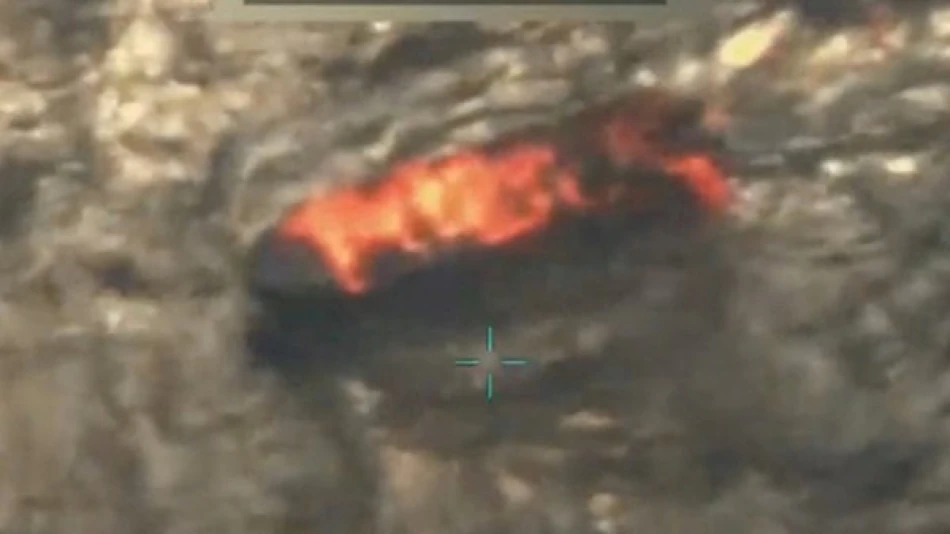
Trump: US Destroys Third Venezuelan Vessel, Escalating Tensions in the Region
Trump Escalates Caribbean Drug War with Third Strike Against Venezuelan Vessels
President Donald Trump revealed Tuesday that U.S. forces have destroyed three Venezuelan boats in recent anti-drug operations, not the two previously reported. The disclosure marks a significant escalation in America's military approach to combating narcotics trafficking from Venezuela, raising questions about the scope and legal framework of these unilateral strikes in international waters.
A Pattern of Escalating Maritime Enforcement
Trump's revelation came during a press interaction where he corrected the public record, stating "We actually took out three boats, not two, but you saw two." The admission suggests a more extensive military campaign than initially disclosed, with the U.S. government providing no additional details about the timing or precise location of the third strike.
When asked about his message to Venezuelan President Nicolás Maduro, Trump's response was direct: "Stop sending drugs to the United States." This blunt diplomatic messaging reflects the administration's frustration with traditional diplomatic channels in addressing the flow of narcotics from Venezuela.
Timeline of Military Action
The first documented strike occurred on September 2nd in the Caribbean, targeting what Trump described as a drug trafficking vessel. That operation resulted in eleven deaths and marked a significant departure from traditional interdiction methods that typically involve boarding and arrests rather than lethal force.
The second confirmed strike was announced Monday morning on Trump's Truth Social platform, accompanied by video footage showing a boat engulfed in flames. According to Trump, this operation killed three Venezuelans he labeled as "narco-terrorists" and took place within the area of responsibility of U.S. Southern Command.
Strategic Implications for Regional Security
These strikes represent a marked shift from the Coast Guard-led interdiction operations that have traditionally characterized U.S. anti-drug efforts in the Caribbean. By deploying military force with apparent shoot-to-kill authorization, the administration is treating drug trafficking as a military threat rather than a law enforcement challenge.
The Caribbean has long served as a crucial transit route for South American cocaine destined for U.S. markets. Venezuela's political instability and economic collapse have created ideal conditions for criminal organizations to operate with relative impunity, making the country a key transshipment point.
International Law and Sovereignty Concerns
The legal framework governing these strikes remains unclear. While the U.S. has broad authority to defend its territorial waters, the destruction of foreign vessels in international waters typically requires either the flag state's consent or clear evidence of imminent threat. Venezuela's government, already at odds with Washington over sanctions and diplomatic recognition, is unlikely to have authorized such operations.
This approach contrasts sharply with traditional maritime law enforcement, where suspected drug vessels are typically stopped, searched, and their crews arrested for prosecution. The shift to lethal force suggests either an escalation in the perceived threat level or a deliberate policy change toward more aggressive deterrence.
Broader Context of U.S.-Venezuela Relations
These military actions occur against the backdrop of severely strained U.S.-Venezuela relations. The Trump administration has imposed extensive economic sanctions on Venezuela and refused to recognize Maduro's government, instead backing opposition leader Juan Guaidó as the legitimate president.
The drug trafficking issue has become increasingly intertwined with broader geopolitical tensions. U.S. officials have repeatedly accused high-ranking Venezuelan officials, including Maduro himself, of facilitating or directly participating in narcotics trafficking operations.
Market and Security Implications
For regional security analysts, these strikes signal a potentially dangerous precedent where anti-drug operations blur the lines between law enforcement and military action. The lack of transparency around targeting criteria and rules of engagement raises concerns about proportionality and civilian casualties.
The escalation may also prompt retaliatory measures or force trafficking organizations to adapt their routes and methods, potentially displacing rather than eliminating the drug trade. Historical precedent suggests that purely military approaches to drug trafficking often produce temporary disruptions rather than lasting solutions.
Most Viewed News

 Layla Al Mansoori
Layla Al Mansoori






